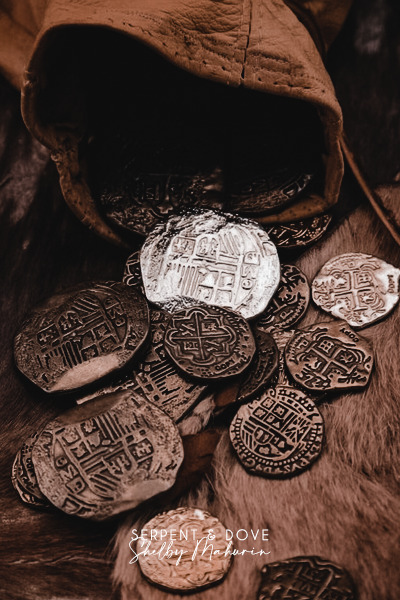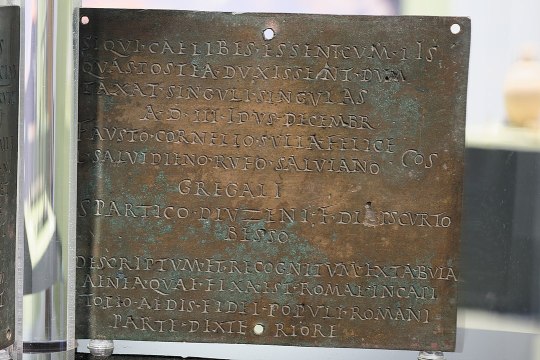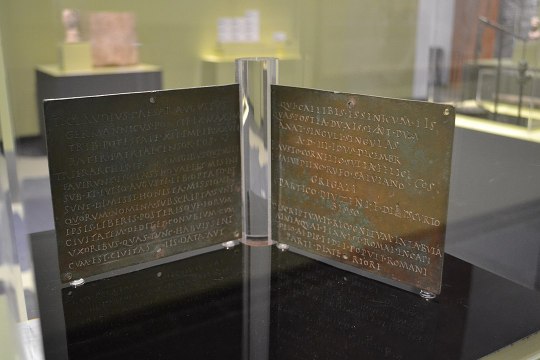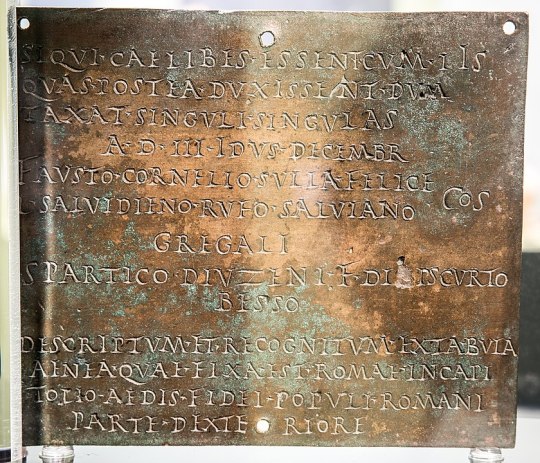#s&dedit
Explore tagged Tumblr posts
Text










Serpent & Dove series | Shelby Mahurin
“Ask me no questions, mon amour , and I shall tell you no lies.”
#myedits#litedit#s&dedit#bookedit#serpent & dove series#serpent and dove series#booksociety#litsociety#storyseekers#serpents & dove#serpent and dove#blood & honey#blood and honey#gods & monsters#gods and monsters#shelby mahurin#louise le blanc#reid diggory#litloversnetwork#litloverswork#fantasysociety#fantasysource#fictionnet#not my favorite#2nd and 3rd book was so slow and could have been easily become one book if she weren't repeat every story again and agian#one looses her mind to a witch and then other gave up his mind because oh he loves her so much bullshit#half of the books were empty mumbling about some bullshit of a half minded witch#reid is total asshole when he gave up his memories until he thinks that he loves louise#the way he started to remember things were so fast and lame#1st book had something but that was because of Lou
95 notes
·
View notes
Text
Some of you don't appreciate Cronenberg's practical effects and it shows!! Y'all GOTTA watch The Thing and the remake of The Fly...
There are so many good movies, even from the time in the early 2000's when horror was in a bit of a decline, that are brilliant, nasty examples of body horror and mutations. Possession - Regan's spider walk down the stairs in The Exorcist? Amazing! Dedites in the Evil Dead films! And if you wanna talk reanimated corpses, the fuckin evolution of George Romero's zombie films! The variation of zombies while maintaining a level of continuity!
not to sound pretentious but it makes me kinda sad when i see people dismissing body horror as just "eyes (or maybe teeth if you're feeling creative) in places where eyes shouldn't be" because it has soooooo much more potential than that. like what about extra body parts, multiple limbs or even heads. fusions. splices. chimeras. grotesque transformations. corruption and infection that gradually spreads and mutates the body until it can no longer be concealed. parasites that change their host's behavior and even appearance. possession. the undead and the reanimated corpse. come ON people!!!
#special interest activated#also the Resident Evil games do this shit beautifully#horror#body horror
3K notes
·
View notes
Text
Francavilla Fontana e Torre S. Susanna: servizio straordinario di controllo del territorio, un arresto per ricettazione e tentata estorsione

Francavilla Fontana e Torre S. Susanna: servizio straordinario di controllo del territorio, un arresto per ricettazione e tentata estorsione. Nell'ambito dei servizi disposti dal Comando Provinciale Carabinieri di Brindisi, mirati a innalzare il livello di prevenzione dei reati e assicurare una cornice di serenità, i Carabinieri della Compagnia di Francavilla Fontana, hanno svolto un servizio straordinario di controllo del territorio nei Comuni di Francavilla Fontana e Torre Santa Susanna con l'impiego di pattuglie dedite ai controlli lungo le vie e nelle piazze maggiormente frequentate, nonché in prossimità dei luoghi interessati dalla c.d. "movida". In particolare, i militari dell'Arma hanno arrestato un 58enne di Francavilla Fontana, destinatario di un ordine di carcerazione emesso dall'Autorità Giudiziaria brindisina, che dovrà espiare una condanna a 3 anni e 7 mesi di reclusione, in relazione ai reati di ricettazione e tentata estorsione, commessi nella città degli Imperiali tra i mesi di giugno e luglio del 2022. All'epoca dei fatti, i militari del Nucleo Operativo e Radiomobile e della Stazione di Francavilla Fontana, in due distinte occasioni, a seguito di altrettante denunce di furto di autovettura presentate dai proprietari, avevano identificato il 58enne, che aveva contattato le vittime telefonicamente pretendendo il pagamento di quasi 2.000,00 euro per la restituzione dei due veicoli rubati. Ma prima che l'uomo riuscisse a ottenere illecitamente il denaro oggetto di richiesta estorsiva, i Carabinieri avevano già recuperato le auto, restituendole ai proprietari. In seguito, nel novembre 2022, a conclusione delle indagini condotte dai militari dell'Arma, il 58enne era stato arrestato in esecuzione di ordinanza di custodia cautelare in carcere in relazione ai due episodi delittuosi. L'uomo, ora destinatario di condanna, è stato quindi rintracciato dai Carabinieri e condotto presso la Casa Circondariale i Brindisi. Inoltre, tra Francavilla Fontana e Torre Santa Susanna sono stati controllati e segnalati all'Autorità Amministrativa 5 giovani, tutti di età compresa tra i 20 e i 22 anni, poiché trovati in possesso di quantitativi di hashish e marijuana per uso personale ed eseguiti numerosi controlli nei confronti di persone sottoposte a misure limitative della libertà personale (poiché agli arresti/detenzione domiciliare o sottoposti alla misura di prevenzione della sorveglianza speciale di pubblica sicurezza), al fine di verificare il rispetto delle prescrizioni imposte dall'Autorità Giudiziaria. Infine, sono stati avviati una serie di controlli nei confronti di attività commerciali, con la collaborazione dei Carabinieri del Nucleo Ispettorato del Lavoro di Brindisi e del Nucleo Antisofisticazione e Sanità di Taranto, per accertare il rispetto delle normative in materia di tutela dei lavoratori e dei luoghi di lavoro nonché di tutela e osservanza delle norme relative alla tracciabilità e custodia dei prodotti alimentari e al rispetto delle norme igienico-sanitarie. Anche nelle prossime settimane saranno svolti ulteriori servizi, inseriti in una calendarizzazione che permetta di mantenere una costante percezione di sicurezza nelle popolazioni locali e per garantire la massima serenità dei cittadini.... #notizie #news #breakingnews #cronaca #politica #eventi #sport #moda Read the full article
0 notes
Text
La Ciliegia di Bracigliano è IGP

La ciliegia di Bracigliano è ufficialmente iscritta nel registro europeo delle denominazioni di origine e delle indicazioni geografiche protette. La pubblicazione è avvenuta il 30.01.2023, sulla Gazzetta Ufficiale Europea n. L26 del 30.01.2023. “Una vittoria del territorio – afferma Francesco Gioia, presidente del GAL Terra è Vita – per la quale il GAL Terra è Vita ha lavorato intensamente finanziando e sostenendo l’intero iter procedurale. Adesso, però, non ci culliamo sugli allori e siamo già pronti a fare in modo che il marchio non sia solo la celebrazione di un lavoro svolto, ma il punto di inizio per aumentare il valore dei produttori di cui dovrà beneficiarne l’intera comunità”. Per questo motivo il GAL Terra è Vita, con il supporto di Confagricoltura e dell’Ente certificatore CSQA, sta investendo nell’apertura di uno sportello che avrà il compito di assistere i produttori nel percorso di qualificazione del prodotto. “Le nostre produzioni, oltre a essere qualitativamente superiori, hanno l��opportunità di imporsi sui mercati esteri – dice Antonio Costantino, presidente di Confagricoltura Salerno – grazie al grande lavoro svolto per fare in modo che le pratiche produttive tradizionali vengano standardizzate e tutelate per essere protette e rese facilmente riconoscibili sui mercati internazionali”. Il riconoscimento della IGP alla Ciliegia di Bracigliano, infatti, ha visto il GAL Terra è Vita ricoprire il ruolo più attivo, in sinergia costante con i produttori e le amministrazioni locali, comprese nell’areale della IGP. “Da oggi comincia una nuova fase per la ciliegia di Bracigliano - afferma il direttore del Gruppo di Azione Locale Terra è Vita Giovanni Giugliano – la nostra azione adesso, in raccordo con i produttori e il territorio, punterà a dar vita a un Consorzio di tutela che possa garantire la certificazione delle aziende produttrici e promuovere il prodotto in maniera organica e funzionale”. La zona di produzione della "Ciliegia di Bracigliano" I.G.P. indicata nel disciplinare comprende l'intero territorio dei seguenti comuni ubicati nelle province di Salerno e Avellino. Provincia di Salerno: Baronissi, Bracigliano, Calvanico, Castel San Giorgio, Cava de’ Tirreni, Fisciano, Mercato San Severino, Pellezzano, Roccapiemonte, Siano. Provincia di Avellino: Contrada, Forino, Montoro, Moschiano. È da sottolineare come le zone vocate alla cerasicoltura di qualità nelle province di Avellino e Salerno siano contigue e ricadano nel comprensorio della Valle dell’Irno, motivo questo che ha spinto il GAL Terra è Vita a supportare fortemente il percorso di riconoscimento della certificazione I.G.P. per la ciliegia di Bracigliano quale driver dello sviluppo di qualità del territorio interessato. I dati più recenti riferiti all’area di interesse per la IGP “Ciliegia di Bracigliano”, riportano sul territorio la presenza di 420 aziende agricole, più alcune dedite alla commercializzazione, una superficie interessata dalla coltivazione della ciliegia di 135,42 ettari per una produzione annua di circa 10mila quintali. Le varietà inserite nel disciplinare sono: - Spernocchia di Bracigliano (ciliegia dolce durone) - Sciazza (ciliegia dolce durone) - Pagliaccia (o pagliaccio o pallaccia) (ciliegia acida) - Silvestre (ciliegia dolce durone) - Palermitana (ciliegia dolce durone) - Baron Picella (ciliegia dolce durone) - Principe (ciliegia dolce) - Don Carmelo (ciliegia durone dolce) - Bigarreu (ciliegia dolce) La Campania, dopo aver detenuto per decenni il primato nazionale, risulta attualmente al secondo posto, dopo la Puglia, per quanto riguarda la produzione di ciliegie (rispettivamente 35 mila tonnellate contro le oltre 40 mila prodotte in quest'ultima regione). Il GAL (Gruppo di azione locale) Irno-Cavese “Terra è Vita” nasce nell’agosto 2016 e ne fanno parte i comuni di Baronissi, Bracigliano, Calvanico, Cava de’ Tirreni, Fisciano, Mercato S. Severino, Pellezzano, Siano e Vietri sul mare. La popolazione del GAL “Terra è Vita”, è pari a 142.127 abitanti, uno dei più grandi in provincia di Salerno. Read the full article
0 notes
Text
Asian Sims 2 Sites
This is just a copy/paste of @0201-sims‘s list of the same name but I went through it to check which sites were still open/sims-related as of May 2021 (ie one of them is now advertising propane tanks).
Blogspot
502508
maysasims
n-kneverkiss
pinty-thaiblog
simssm
siosims
totoasims
Daum
avika
piggyamily
fah01
grayish
janita
lusama
maynarakmak
menijung
pepaworld
hellomary
saublog
FC2
1080te
misaki0218
hiyokosims
lolisims2
mercury1999
midnightgarage
lovolv
xxxsisterxxx
sifive
src69
covenant0
vertiges
Sina
dumb horse
LunaYUE
Tistory
cerebella
crayonsama
xxxxxxxx.jp
inkpen
simoid
Naver
aserror
yulez
dragon00
ariecha
avikapang
pigiizcn
baaabell
blue1489
bluelemon_b
chabiiz
krystalsims
ehrpzla
enjoy_kiss
feliojen
ferris_pby
phunkiize
guzzhang
mon_18
llazyme
imziiz
ciel_bb
karr_0
ksss7406
lkj5610
1314wangd
myr9032
a980324
roxehfoxehh
jinhee_a
sodapou
tendre703
bbkr1991
auakiku123
lightfiresim
lo3ol_66
a980324
izzang04
cherry_bbko
kobayashi
pingoz
waffleploy
reichichan
rincafe
rongmong
royalblues87
alice_sao12
sizz_tp
sluty_ellie
angelurimi
lwj23140
thidajkn
tealeafs
menoyy
vividhikari
yeondang_
yooshinpan_n
oi1392
sujaein2
Misc. Site Hosts
absolute zero
bbsims
bluechili
dedital sheep
deepspaceunder
LeeElton
yoojaek2
hatsuyakung
Karas Watching Society
Sim Naru
MayPink
Love Furu
ketooberst
Simple Life
sims in cider
XM Sims
Zuzuburo
StrawberrySims
122 notes
·
View notes
Photo



Diploma militar hallado en Stabia, conservado por las cenizas del Vesubio.
Ti(berius) Claudius Caesar Augustus / German{n}icus pontifex maxim(us) / trib(unicia) potestate XII imper(ator) XXVII / pater patriae censor co(n)s(ul) V / trierarchis et remigibus qui mili/taverunt in classe quae est Miseni / sub Ti(berio) Iulio Augusti lib(erto) Optato et / sunt dimissi honesta missione / quorum nomina subscripta sunt / ipsis liberis posterisque eorum / civitatem dedit et conubium cum / uxoribus quas tunc habuissent / cum est civitas iis data aut // si qui caelibes essent cum iis / quas postea duxissent dum/taxat singuli singulas / a(nte) d(iem) III Idus Decembr(es) / Fausto Cornelio Sulla Felice / L(ucio) Salvidieno Rufo Salviano / co(n)s(ulibus) / gregali / Spartico Diuzeni f(ilio) Dibpscurto / Besso / descriptum et recognitum ex tabula / aenea quae fixa est Romae in Capi/tolio aedis Fidei populi Romani / parte dexteriore // Ti(berius) Claudius Caesar Aug(ustus) Germanicus / pontifex maxim(us) trib(unicia) pot(estate) XII imper(ator) XXVII / pater patriae censor co(n)s(ul) V / trierarchis et remigibus qui mili/taverunt in classe quae est Miseni sub Ti(berio) / Iulio Augusti lib(erto) Optato et sunt / dimissi honesta missione quorum nomina sub/scripta sunt ipsis liberis posterisque / eorum civitatem dedit et conubium / cum uxoribus quas tunc habuissent / cum est civitas iis data aut si qui // caelibes essent cum iis quas postea / duxissent dumtaxat singuli singulas / a(nte) d(iem) III Idus Decembr(es) / Fausto Cornelio Sulla Felice / L(ucio) Salvidieno Rufo Salviano / co(n)s(ulibus) / gregali / Spartico Diuzeni f(ilio) Dbipscurto / Besso / descriptum et recognitum ex tabula aen<e=I>a / quae fixa est Romae in Capitolio aedis / Fidei populi Romani parte dexteriore // L(uci) Mesti L(uci) f(ilii) Aem(ilia) Prisci / Dyrrachini / L(uci) Nutri Venusti Dyrra/chini / C(ai) Durrachini(!) Anthi Dyrra/chini / C(ai) Sabini Nedymi Dyrra/chini / C(ai) Corneli Ampliati Dyr/rachini / T(iti) Pomponi Epaphroditi / Dyrrachini / N(umeri) Mini
Imágenes Creative Commons
2 notes
·
View notes
Text

SHARD:/ @shelazarus

it feels like she’s drowning, sunk into the aphotic zone/water logged and sinking down like concrete. like she’s biting down on despair, her tongue swollen and puffing up. it’s the loss of vital self in love, desiring all awkward parts and edges, like something catching. [ THERE IS A HOLE BEING GNAWED INSIDE OF ME ] devouring, the body deeper than the soul with all its secrets inscrutable. clouds.. ugly in neon, boozy music & sticky carpets. the intimate way of self-destruction. the dizzying way that fate thrusts life together, all but erased. you smile a little, you are in agony.
like a fawning parasite, fingers clawing at the edges of sanity & semblance of a self, singular. how easy they become, how two becomes one; a sticky mess clinging to the tips of her fingers, dripping down like honey.
❛ WELCOME TO CLOUDS — ❜ it’s unfinished, lazily stated & started upon a repeat. they know her, like she’s imprinted into the system far more then the mere scratch she wants to be. she chews, she scratches.
his voice echoes around, rumbling in her ears. everything rattles now, a single sound impossible to exist. ‘ you’re like an addict, y’know? ’ he becomes harder to ignore, or maybe she’s worse at ignoring him. when the darkness creeps, pulling on her limbs and calling her back into the fucking city.. but this, this is her dedition. her single moment of surrender.
❛ i feel like a fucking carton of milk, ❜ her head hits the bed, dark river reeds of hair fanned out. sinking, sinking, sinking. it’s lazy, rolls off her tongue like silk. everything feels like water, like it’s running through her hands. it’s water, it’s sand, either way it’s losing her grip on everything. the faux shadow of chrome encasing her arm, the slip of her tongue, the way she rests her head. but there’s so much to do. lives at stake, armies being born. a curl of her body, entangled within the sheets. i lose myself in time. ❛ i’m going to expire soon, i’ve got a ticking time bomb and it’s like i’m sitting in the fridge, waiting to go off. get all rotten and used up, useless and thrown away. ❜

love & dread live here. parasite, symbiote. the death of everything, out of body, out of mind and time. ❛ he didn’t even get a grave, lyds. feels like that’s going to be me, dead and alone in some oil field for no one to notice or remember. i sat there, it felt so dark & cold, fucking alone. this overwhelming darkness, almost.. i’m afraid for everything, for what will happen in the end. ❜
1 note
·
View note
Text

Photo taken from [Baalbek Roman Temple]
Latin was originally spoken by an eponymous group of ancient Italians. One of these Latin cities, the Romans, spread the language by conquering all of Italy, later the Mediterranean, then much of Europe and the Middle East. Although rarely spoken now, it is the mother of all Romance languages and contributes to about a third of English vocabulary. Its influence has since spread across the world through European imperialism; there are few places left that are completely unaffected by the Romans’ language and culture.
This particular post serves as both a beginner’s guide and a taster to what Latin is, with some common vocabulary along the way. Especially since many people are currently stuck at home due to Covid-19, and may like to stay occupied by learning a new language. Hope you enjoy!
N.B. Anything beginning with an asterisk (*) means that you may hear differently elsewhere, for example on Duolingo.
General
Latin is fundamentally a very difficult language, even for academics, and even if your native tongue is Romance. But I am not saying not to try, I am saying it is normal to struggle!
All ‘U’s were then written as ‘V’s, and all ‘J’s as ‘I’s. Modern Latin-learning tends to replace some ‘V’s with ‘U’s in order to facilitate reading. We have lost the exact pronunciations of classical Latin, not to mention differences between dialects, but the following explanations are some of the strongest estimates.
*‘V’ should be normally pronounced as /ʍ/, when between consonants as /u/.
*A standalone ‘I’ before another vowel becomes /j/ or /dʒ/.
Iuppiter servum in exilium pepulit.
[ Ivppiter servvm in exilivm pepvlit. ]
[ Yoo-pi-ter ser-woom in e-xi-li-oom pe-poo-lit. ]
Jupiter drove the slave into exile.
Iuppiter, Iovis (3, m.) - Jupiter, king of the gods servus, servi (2, m.) - slave in + acc. - into, to exilium, exilii (2, n.) - exile pello, pellere, pepuli, pulsum (3) - drive out, push, repel
Latin generally follows a SOV (subject, object, verb) sentence structure:
rex regnum amat.
The king loves his kingdom.
rex, regis (3, m.) - king regnum, regni (2, n.) - kingdom; power amo, amare, amavi, amatum (1) - love, like
There are no definite or indefinite articles (a/the) - normally, you must add them to your translation yourself depending on the context. There are relative pronouns (e.g. qui/quae/quod - who, which), demonstrative pronouns (e.g. hic/haec/hoc - this; he/she/it) and many other pronouns/determiners, but they are not required for every sentence.
*Unlike English, you do not capitalise the sentence’s first letter UNLESS that first letter is part of a name.
Most meanings are conveyed via changes in word endings (i.e. it relies on conjugating and declining) rather than word order. This makes Latin an inflected language.
Nouns
While English uses word order to show how nouns and adjectives relate to a situation, Latin uses endings and cases from different declensions to do the same. Latin uses 7 cases, but 2 of them (vocative and locative) are rarer.
nominative (nom.) - subject
vocative (voc.) - addressee: often follows ‘o’
accusative (acc.) - object
genitive (gen.) - possessor (of/‘s)
dative (dat.) - recipient (to/for)
ablative (abl.) - movement away (from) / instrumental (by/with) / location (at/in)
locative (loc.) - location (at/in)
Here’s an example with all 7 in action:
pater, o Attice, donum Iovis matri cum comite Romae dedit.
Atticus, my father gave Jupiter’s gift to my mother with his comrade in Rome.
pater, patris (3, m.) - father donum, doni (2, n.) - gift, present mater, matris (3, f.) - mother cum + abl. (only used for people) - with comes, comitis (3, m/f.) - companion, comrade, partner Roma, Romae (1, f.) - Rome do, dare, dedi, datum (1) - give; surrender, hand over
Noun endings change in case, gender and number. There are three genders: masculine (m.), feminine (f.), and neuter (n.). The two grammatical numbers are singular (sg.) and plural (pl.). A noun will abide by the endings of one of five possible declensions.
In dictionaries, like above, you will see a noun given as ‘nominative, genitive (declension, gender) - English meaning’. The genitive is always featured because it is the only case whose ending is specific to its own declension (other endings may be seen across declensions but have different cases each time). Therefore, if you know what a noun’s genitive is, you know what declension it is, and vice versa.
Adjectives
An adjective agrees with its related noun in case, gender and number. However, they do not always have the same endings; all adjectives decline as either 2nd m. / 1st / 2nd n. (also seen as 2-1-2) or 3rd.
Here, every adjective agrees with the adjacent noun in case, gender and number, but none has the same ending:
omnis puella, mulier pulchra, homo sapiens, puer stultus
every girl, the beautiful woman, the wise man, a foolish boy
omnis, omne (3) - every, all; whole puella, puellae (1, f.) - girl mulier, mulieris (3, f.) - woman pulcher, pulchra, pulchrum (2-1-2) - beautiful, handsome homo, hominis (3, m.) - man; human being sapiens, sapientis (3) - wise, knowing puer, pueri (2, m.) - boy stultus, stulta, stultum (2-1-2) - stupid, foolish
N.B. With exceptions, most Latin adjectives follow the noun.
However, that is not to say that nouns and adjectives can never have the same endings. They often do: Roman writers used this frequently as a literary device known as homoioteleuton.
equus magnus, feminae parvae, homines sapientes, dona laeta
a big horse, little women, wise men, the happy gifts
equus, equi (2, m.) - horse magnus, magna, magnum (2-1-2) - big, great, large femina, feminae (1, f.) - woman parvus, parva, parvum (2-1-2) - little, small laetus, laeta, laetum (2-1-2) - happy, cheerful, blessed
Sometimes you see an adjective without a noun. When this happens, translate the adjective as an adjective AND a noun:
fortis horrenda diu passus est.
The brave man suffered horrible things for a long time.
fortis, forte (3) - brave, strong, bold horrendus, horrenda, horrendum (2-1-2) - horrible, terrible, horrendous diu (adv.) - for a long time patior, pati, passus sum (3, deponent) - suffer, endure; allow, permit
N.B. horrenda is in the accusative neuter plural, hence ‘things’.
Verbs
The doers of verbs are shown by verb endings, unlike English which requires personal pronouns. Nominative personal pronouns can support a verb in Latin, but they are not required. They are best used to show contrast, unity or general emphasis - as if someone were pointing a finger at you - and this is why they are not seen often. Both sentences below are grammatically correct, but the second flows better:
ego dormire amo, tu dormire amas, nos amici apti sumus.
dormire amo, dormire amas, amici apti sumus.
I like to sleep, you like to sleep, we are suitable friends.
dormio, dormire, dormivi, dormitum (4) - sleep ego, me, mei (pers. pron.) - I, me, my tu, te, tui (pers. pron.) - you, you, your nos, nos, nostri (pers. pron.) - we, we, our amicus, amici; amica, amicae (2/1, m./f.) - friend aptus, apta, aptum (2-1-2) - suitable, apt, appropriate sum, esse, fui, futurum (irreg.) - be; be alive, exist, live
Latin uses the following tenses: present, future, future perfect, perfect, imperfect and pluperfect - and each comes with its own set of endings. There are also participles, supines, infinitives, imperatives, gerunds, gerundives, actives, passives, deponents and other structures to show contemporary, previous, subordinate or hypothetical events - these also come with their own stems and endings, but they often work like adjectives and so are not entirely unrecognisable.
Dictionaries present verbs as ‘present active, present active infinitive, perfect active, supine (conjugation)’. There are 4 conjugations, which are different sets of verb endings.
All Latin verbs come as either 1. active (I kill), 2. passive (I am killed) or 3. deponent (passive in form, active in meaning). Each comes with its own set of endings.
1. hic homo me interficit!
This man is killing me!
2. hic homo interficitur!
This man is being killed!
3. hic homo me interficere conatur!
This man is trying to kill me!
hic, haec, hoc (pron.) - this; he/she/it interficio, interficere, interfeci, interfectum (3) - kill, destroy conor, conari, conatus sum (1, deponent) - try, attempt
N.B. While most verbs can be active or passive interchangeably, deponents never switch. They are never seen with active endings or passive meanings.
The indicative (1) and subjunctive (2) moods distinguish expectations from reality. The indicative presents facts, while the subjunctive anything hypothetical from questions to wishes to fears. Each mood comes with its own set of endings.
1. vir dives me cupit.
The rich man wants me.
2. vir dives me cupiat.
May the rich man want me.
vir, viri (2, m.) - man; husband dives, divitis (gen.) (3) - rich, wealthy; wealthy man cupio, cupere, cupivi, cupitum (3) - desire, want, long for
Learning ancient versus modern languages
I’ve seen language-learners new to Latin comment on the difference in tone and content, sometimes even being discouraged by it.
Learning an ancient language which is no longer spoken today, i.e. ‘dead’, is very different from learning a modern foreign language. Some basic techniques don’t change, such as how to memorise vocab. However, the overall approaches are different because the overall goals are different - unless the goal is simple pure enjoyment, which is in fairness the best reason to learn!
Modern language studies are to encourage international communication and many other reasons.
Ancient language studies are almost entirely to study the ancient world, how it led to the modern world, and this is mostly done through analysing ancient sources in their original languages.
When studying Latin, you therefore are more likely to learn heavy vocabulary such as ‘die’ or ‘sacrifice’ before you learn ‘take a bath’ - some of the examples I use in this post aren’t cheerful. Classicists learn how to translate heavier content first because it is more commonly mentioned in the ancient sources which the entire subject relies upon - death comes up much more frequently in Caesar’s Gallic Wars than greetings.
Recommended resources
- Duolingo Latin course - if you want to learn Latin as you would a modern language.
- Memrise Latin courses - almost infinite number of vocabulary and idiom lists.
- Massolit Classics ($) - online lectures covering Greek and Roman history, culture and literature.
- Amazon page for John Taylor ($) - esteemed author of Latin textbooks from beginner level up.
- William Whitaker’s Words - reliable vocabulary translator in both directions.
- Perseus Digital Library - public archive of ancient texts in their original languages and many different English translations.
- Logeion - online dictionary for Latin and Classical Greek.
Final Word
Absolutely do not fret if anything confuses you; like all things worth doing, understanding and applying it will take time. I am making more in-depth posts on various aspects of Latin grammar and vocab, with exercises, in the very near future, so hold on tight. Thank you for reading!
#latin#tagamemnon#polyglot#langblr#language#learning latin#latin language#latina lingua#classics#classicsblr#rome#languages#roman#tagammemnon#mine#classics: language#latin: vocab#latin: grammar#latin: resources#beginner's guide to latin#classics: resources#peirates
14 notes
·
View notes
Text
Pliny the Younger | Mount Vesuvius Eruption, Part One
C. Plinius Tacito suo s.
Petis ut tibi avunculi mei exitum scribam, quo verius tradere posteris possis. Gratias ago; nam video morti eius si celebretur a te immortalem gloriam esse propositam. Quamvis enim pulcherrimarum clade terrarum, ut populi ut urbes memorabili casu, quasi semper victurus occiderit, quamvis ipse plurima opera et mansura condiderit, multum tamen perpetuitati eius scriptorum tuorum aeternitas addet. Equidem beatos puto, quibus deorum munere datum est aut facere scribenda aut scribere legenda, beatissimos vero quibus utrumque. Horum in numero avunculus meus et suis libris et tuis erit. Quo libentius suscipio, deposco etiam quod iniungis.
Erat Miseni classemque imperio praesens regebat. Nonum Kal. Septembres hora fere septima mater mea indicat ei apparere nubem inusitata et magnitudine et specie. Usus ille sole, mox frigida, gustaverat iacens studebatque; poscit soleas, ascendit locum ex quo maxime miraculum illud conspici poterat. Nubes - incertum procul intuentibus ex quo monte; Vesuvium fuisse postea cognitum est - oriebatur, cuius similitudinem et formam non alia magis arbor quam pinus expresserit. Nam longissimo velut trunco elata in altum quibusdam ramis diffundebatur, credo quia recenti spiritu evecta, dein senescente eo destituta aut etiam pondere suo victa in latitudinem vanescebat, candida interdum, interdum sordida et maculosa prout terram cineremve sustulerat. Magnum propiusque noscendum ut eruditissimo viro visum. Iubet liburnicam aptari; mihi si venire una vellem facit copiam; respondi studere me malle, et forte ipse quod scriberem dederat. Egrediebatur domo; accipit codicillos Rectinae Tasci imminenti periculo exterritae - nam villa eius subiacebat, nec ulla nisi navibus fuga -: ut se tanto discrimini eriperet orabat. Vertit ille consilium et quod studioso animo incohaverat obit maximo. Deducit quadriremes, ascendit ipse non Rectinae modo sed multis - erat enim frequens amoenitas orae - laturus auxilium. Properat illuc unde alii fugiunt, rectumque cursum recta gubernacula in periculum tenet adeo solutus metu, ut omnes illius mali motus omnes figuras ut deprenderat oculis dictaret enotaretque.
Iam navibus cinis incidebat, quo propius accederent, calidior et densior; iam pumices etiam nigrique et ambusti et fracti igne lapides; iam vadum subitum ruinaque montis litora obstantia. Cunctatus paulum an retro flecteret, mox gubernatori ut ita faceret monenti 'Fortes' inquit 'fortuna iuvat: Pomponianum pete.' Stabiis erat diremptus sinu medio - nam sensim circumactis curvatisque litoribus mare infunditur -; ibi quamquam nondum periculo appropinquante, conspicuo tamen et cum cresceret proximo, sarcinas contulerat in naves, certus fugae si contrarius ventus resedisset. Quo tunc avunculus meus secundissimo invectus, complectitur trepidantem consolatur hortatur, utque timorem eius sua securitate leniret, deferri in balineum iubet; lotus accubat cenat, aut hilaris aut - quod aeque magnum - similis hilari. Interim e Vesuvio monte pluribus locis latissimae flammae altaque incendia relucebant, quorum fulgor et claritas tenebris noctis excitabatur. Ille agrestium trepidatione ignes relictos desertasque villas per solitudinem ardere in remedium formidinis dictitabat. Tum se quieti dedit et quievit verissimo quidem somno; nam meatus animae, qui illi propter amplitudinem corporis gravior et sonantior erat, ab iis qui limini obversabantur audiebatur. Sed area ex qua diaeta adibatur ita iam cinere mixtisque pumicibus oppleta surrexerat, ut si longior in cubiculo mora, exitus negaretur. Excitatus procedit, seque Pomponiano ceterisque qui pervigilaverant reddit. In commune consultant, intra tecta subsistant an in aperto vagentur. Nam crebris vastisque tremoribus tecta nutabant, et quasi emota sedibus suis nunc huc nunc illuc abire aut referri videbantur. Sub dio rursus quamquam levium exesorumque pumicum casus metuebatur, quod tamen periculorum collatio elegit; et apud illum quidem ratio rationem, apud alios timorem timor vicit. Cervicalia capitibus imposita linteis constringunt; id munimentum adversus incidentia fuit. Iam dies alibi, illic nox omnibus noctibus nigrior densiorque; quam tamen faces multae variaque lumina solvebant. Placuit egredi in litus, et ex proximo adspicere, ecquid iam mare admitteret; quod adhuc vastum et adversum permanebat. Ibi super abiectum linteum recubans semel atque iterum frigidam aquam poposcit hausitque. Deinde flammae flammarumque praenuntius odor sulpuris alios in fugam vertunt, excitant illum. Innitens servolis duobus assurrexit et statim concidit, ut ego colligo, crassiore caligine spiritu obstructo, clausoque stomacho qui illi natura invalidus et angustus et frequenter aestuans erat. Ubi dies redditus - is ab eo quem novissime viderat tertius -, corpus inventum integrum illaesum opertumque ut fuerat indutus: habitus corporis quiescenti quam defuncto similior.
Interim Miseni ego et mater - sed nihil ad historiam, nec tu aliud quam de exitu eius scire voluisti. Finem ergo faciam. Unum adiciam, omnia me quibus interfueram quaeque statim, cum maxime vera memorantur, audieram, persecutum. Tu potissima excerpes; aliud est enim epistulam aliud historiam, aliud amico aliud omnibus scribere. Vale.
From Pliny to Tacitus.
You ask me to send you an account of my uncle's death, so that you may be able to give posterity an accurate description of it. I am much obliged to you, for I can see that the immortality of his fame is well assured, if you take in hand to write of it. For although he perished in a disaster which devastated some of the fairest regions of the land, and though he is sure of eternal remembrance like the peoples and cities that fell with him in that memorable calamity, though too he had written a large number of works of lasting value, yet the undying fame of which your writings are assured will secure for his a still further lease of life. For my own part, I think that those people are highly favoured by Providence who are capable either of performing deeds worthy of the historian's pen or of writing histories worthy of being read, but that they are peculiarly favoured who can do both. Among the latter I may class my uncle, thanks to his own writings and to yours. So I am all the more ready to fulfil your injunctions, nay, I am even prepared to beg to be allowed to undertake them.
My uncle was stationed at Misenum, where he was in active command of the fleet, with full powers. On the 24th of August, about the seventh hour, my mother drew his attention to the fact that a cloud of unusual size and shape had made its appearance. He had been out in the sun, followed by a cold bath, and after a light meal he was lying down and reading. Yet he called for his sandals, and climbed up to a spot from which he could command a good view of the curious phenomenon. Those who were looking at the cloud from some distance could not make out from which mountain it was rising - it was afterwards discovered to have been Mount Vesuvius - but in likeness and form it more closely resembled a pine-tree than anything else, for what corresponded to the trunk was of great length and height, and then spread out into a number of branches, the reason being, I imagine, that while the vapour was fresh, the cloud was borne upwards, but when the vapour became wasted, it lost its motion, or even became dissipated by its own weight, and spread out laterally. At times it looked white, and at other times dirty and spotted, according to the quantity of earth and cinders that were shot up.
To a man of my uncle's learning, the phenomenon appeared one of great importance, which deserved a closer study. He ordered a Liburnian galley to be got ready, and offered to take me with him, if I desired to accompany him, but I replied that I preferred to go on with my studies, and it so happened that he had assigned me some writing to do. He was just leaving the house when he received a written message from Rectina, the wife of Tascus, who was terrified at the peril threatening her - for her villa lay just beneath the mountain, and there were no means of escape save by shipboard - begging him to save her from her perilous position. So he changed his plans, and carried out with the greatest fortitude the task, which he had started as a scholarly inquiry.
He had the galleys launched and went on board himself, in the hope of succouring, not only Rcctina, but many others, for there were a number of people living along the shore owing to its delightful situation. He hastened, therefore, towards the place whence others were fleeing, and steering a direct course, kept the helm straight for the point of danger, so utterly devoid of fear that every movement of the looming portent and every change in its appearance he described and had noted down by his secretary, as soon as his eyes detected it. Already ashes were beginning to fall upon the ships, hotter and in thicker showers as they approached more nearly, with pumice-stones and black flints, charred and cracked by the heat of the flames, while their way was barred by the sudden shoaling of the sea bottom and the litter of the mountain on the shore. He hesitated for a moment whether to turn back, and then, when the helmsman warned him to do so, he exclaimed, "Fortune favours the bold ; try to reach Pomponianus." The latter was at Stabiae, separated by the whole width of the bay, for the sea there pours in upon a gently rounded and curving shore. Although the danger was not yet close upon him, it was none the less clearly seen, and it travelled quickly as it came nearer, so Pomponianus had got his baggage together on shipboard, and had determined upon flight, and was waiting for the wind which was blowing on shore to fall. My uncle sailed in with the wind fair behind him, and embraced Pomponianus, who was in a state of fright, comforting and cheering him at the same time. Then in order to calm his friend's fears by showing how composed he was himself, he ordered the servants to carry him to the bath, and, after his ablutions, he sat down and had dinner in the best of spirits, or with that assumption of good spirits which is quite as remarkable as the reality.
In the meantime broad sheets of flame, which rose high in the air, were breaking out in a number of places on Mount Vesuvius and lighting up the sky, and the glare and brightness seemed all the more striking owing to the darkness of the night. My uncle, in order to allay the fear of his companions, kept declaring that the country people in their terror had left their fires burning, and that the conflagration they saw arose from the blazing and empty villas. Then he betook himself to rest and enjoyed a very deep sleep, for his breathing, which, owing to his bulk, was rather heavy and loud, was heard by those who were waiting at the door of his chamber. But by this time the courtyard leading to the room he occupied was so full of ashes and pumice-stones mingled together, and covered to such a depth, that if he had delayed any longer in the bedchamber there would have been no means of escape. So my uncle was aroused, and came out and joined Pomponianus and the rest who had been keeping watch. They held a consultation whether they should remain indoors or wander forth in the open; for the buildings were beginning to shake with the repeated and intensely severe shocks of earthquake, and seemed to be rocking to and fro as though they had been torn from their foundations. Outside again there was danger to be apprehended from the pumice-stones, though these were light and nearly burnt through, and thus, after weighing the two perils, the latter course was determined upon. With my uncle it was a choice of reasons which prevailed, with the rest a choice of fears.
They placed pillows on their heads and secured them with cloths, as a precaution against the falling bodies. Elsewhere the day had dawned by this time, but there it was still night, and the darkness was blacker and thicker than any ordinary night. This, however, they relieved as best they could by a number of torches and other kinds of lights. They decided to make their way to the shore, and to see from the nearest point whether the sea would enable them to put out, but it was still running high and contrary. A sheet was spread on the ground, and on this my uncle lay, and twice he called for a draught of cold water, which he drank. Then the flames, and the smell of sulphur which gave warning of them, scattered the others in flight and roused him. Leaning on two slaves, he rose to his feet and immediately fell down again, owing, as I think, to his breathing being obstructed by the thickness of the fumes and congestion of the stomach, that organ being naturally weak and narrow, and subject to inflammation. When daylight returned - two days after the last day he had seen - his body was found untouched, uninjured, and covered, dressed just as he had been in life. The corpse suggested a person asleep rather than a dead man.
Meanwhile my mother and I were at Misenum. But that is of no consequence for the purposes of history, nor indeed did you express a wish to be told of anything except of my uncle's death. So I will say no more, except to add that I have given you a full account both of the incidents which I myself witnessed and of those narrated to me immediately afterwards, when, as a rule, one gets the truest account of what has happened. You will pick out what you think will answer your purpose best, for to write a letter is a different thing from writing a history, and to write to a friend is not like writing to all and sundry. Farewell.
Pliny, Letters 6.16 (Translated by J Firth, 1900).
#classics#tagamemnon#tagitus#history#ancient history#ancient rome#rome#ancient italy#italy#pompeii#vesuvius#mount vesuvius#eruption#volcano#volcanic eruption#79 ce#79 ad#ce#ad#24 august#august#pliny#pliny the younger#letters#tacitus#translation#latin#latin language#personal#primary source
116 notes
·
View notes
Text
Chris Trinidad’s Chant Triptych II (Iridium Records, 2018)

Chris Trinidad: bass guitar; Alex Hand Miller: guitars, tamboura; Neelamjit Dhillon: tabla, bansuri, kanjira, alto saxophone; Mario Salomon: bongo, congas, campana, maracas; Colin Hogan: accordion, melodica
Bassist Chris Trinidad follows 2017's Chant Triptych I with the sequel Chant Triptych II. Besides being a bassist, he has taught liturgical music and is now a vice principal, with this series of albums having an interesting series of origins. Chant Triptych II looks at the same melodies of the Lasallian based liturgical prayer music inspired by the great teacher Saint John Baptist De La Salle, a 17th century French education reformer. The melodies of these eight pieces on the first album were termed what Trinidad called “audio incense” where he used analog synthesizers and percussion to assemble meditation music on the same wavelength of Jack DeJohnette's Peace Time (Golden Beams Productions, 2005). Here, Trinidad refashions these melodies in a jazz setting with a quintet including himself on bass guitar, Alex Hand on guitars and tamboura, Neelamjit Dhillon on tabla, bansuri flute, kanjira and alto saxophone, percussionist Mario Salomon, and Colin Hogan on accordion and melodica.
Trinidad's rearrangements of these Gregorian chants is fascinating. The bassist, whose sensitive playing is the root of everything, drew on a variety of inspirations and influences including John McLaughlin and Shakti, Chris Speed's Pachora and John Zorn's long running Masada project. The bassist kept the original melodies intact, by adding a few twists like triplet ornamentation amidst a mix of Balkan, Indian and Afro-Cuban rhythms. The multi cultural quintet bristles with energy on “Sinite Parvulos” where the linear harmony of the liturgical style of music creates an intriguing bed for improvisation. Colin Hogan's accompaniment on accordion and melodica solo are noteworthy. Alex Hand's electric guitar solo on “Beatus Quem Elegisti” hints at Kurt Rosenwinkel with it's angularity combined with a slight bluesy flavor that suits a natural bluesiness in these melodies. Hand's mastery of Balkan idioms shines on “Dispersit Dedit Pauperibus” with it's insistent odd meter in 11 giving Dhillon ample time to solo over it's hypnotic vamp. Dhillon's mournful bansuri flute intro to “Qui Timent” marries the Indian flavor of his lines with the piece's gentle melody statement. “Qui Fecerit” the closer, uses a percolating 6/8 bembe rhythm of Salomon's percussion to finish things on a spirit note. Trinidad's bass lines are always solid and offer a selflessness that is quite reminiscent of Steve Rodby.
Chant Triptych II through it's world view, and blend of the sacred and the secular in an improvisational context engender a similar kind of curiosity that Michael Cretu's Enigma project did in the 90's in the realm of dance music. Trinidad's respect for the source material is injected with a freedom to allow the soloists to express themselves without restriction. One of the most unique releases this year.
Rating: 9/10
#chris trinidad#bass guitar#alex hand miller#neelamjit dhillon#mario salomon#colin hogan#gregorian chant#jazz
1 note
·
View note
Text
Venezia: alla stazione S. Lucia denunciate sei persone per violazione del provvedimento del Foglio di Via obbligatorio

Venezia: alla stazione S. Lucia denunciate sei persone per violazione del provvedimento del Foglio di Via obbligatorio. Venezia. Continuano pressanti i servizi di prevenzione e sicurezza predisposti dal Compartimento di Polizia Ferroviaria del Veneto, soprattutto nei principali scali ferroviari di competenza. In particolare, nello scaldo di Venezia S. Lucia i servizi antiborseggio e l’attività di vigilanza, tra sabato scorso e oggi, lunedì 6 novembre, hanno consentito al personale Polfer, impiegato sia in uniforme che in abiti civili, di denunciare all’Autorità Giudiziaria 6 persone trovate nello scalo in violazione del provvedimento del Foglio di via, emesso dal Questore nei confronti di altrettante donne dedite alla commissione di reati predatori nella città lagunare. Le donne fermate, tutte originarie dell’Est Europa, sono state controllate dal personale della Polizia Ferroviaria, che le ha notate perché volti conosciuti agli operanti, essendosi in precedenza resesi responsabili a vario titolo della commissione di reati. All’attività di sicurezza e vigilanza delle stazioni ferroviarie di Mestre e Venezia S. Lucia concorrono dalla giornata di sabato 3 novembre, anche i militari delle Forze Armate con la specifica finalità di rafforzate i dispositivi di controllo e sicurezza dei luoghi ove insistono le principali infrastrutture ferroviarie.... #notizie #news #breakingnews #cronaca #politica #eventi #sport #moda Read the full article
0 notes
Text
CIL 07, 00138 = RIB-01, 00305 (301–410 AD) Pectillus / votum quod / promis{s}it / deo N<o=U>dent<i=E> / M(arti) dedit
0 notes
Photo

THE BOOK OF ECCLESIASTES- From The Douay-Rheims Bible - Latin Vulgate
Chapter 8
INTRODUCTION
This Book is called Ecclesiastes, or the preacher, (in Hebrew, Coheleth) because in it Solomon, as an excellent preacher, setteth forth the vanity of the things of this world, to withdraw the hearts and affections of men from such empty toys. Ch. --- Coheleth is a feminine noun, to indicate the elegance of the discourse. It is very difficult to discriminate the objections of free-thinkers from the real sentiments of the author. It is most generally supposed that Solomon wrote this after his repentance; but this is very uncertain. S. Jerom (in C. xii. 12.) informs us that the collectors of the sacred books had some scruple about admitting this; and Luther speaks of it with great disrespect: (Coll. conviv.) but the Church has always maintained its authority. See Conc. v. Act. 4. Philast. 132. C. --- It refutes the false notions of worldlings, concerning felicity; and shews that it consists in the service of God and fruition. W.
The additional Notes in this Edition of the New Testament will be marked with the letter A. Such as are taken from various Interpreters and Commentators, will be marked as in the Old Testament. B. Bristow, C. Calmet, Ch. Challoner, D. Du Hamel, E. Estius, J. Jansenius, M. Menochius, Po. Polus, P. Pastorini, T. Tirinus, V. Bible de Vence, W. Worthington, Wi. Witham. — The names of other authors, who may be occasionally consulted, will be given at full length.
Verses are in English and Latin. HAYDOCK CATHOLIC BIBLE COMMENTARY
This Catholic commentary on the Old Testament, following the Douay-Rheims Bible text, was originally compiled by Catholic priest and biblical scholar Rev. George Leo Haydock (1774-1849). This transcription is based on Haydock's notes as they appear in the 1859 edition of Haydock's Catholic Family Bible and Commentary printed by Edward Dunigan and Brother, New York, New York.
TRANSCRIBER'S NOTES
Changes made to the original text for this transcription include the following:
Greek letters. The original text sometimes includes Greek expressions spelled out in Greek letters. In this transcription, those expressions have been transliterated from Greek letters to English letters, put in italics, and underlined. The following substitution scheme has been used: A for Alpha; B for Beta; G for Gamma; D for Delta; E for Epsilon; Z for Zeta; E for Eta; Th for Theta; I for Iota; K for Kappa; L for Lamda; M for Mu; N for Nu; X for Xi; O for Omicron; P for Pi; R for Rho; S for Sigma; T for Tau; U for Upsilon; Ph for Phi; Ch for Chi; Ps for Psi; O for Omega. For example, where the name, Jesus, is spelled out in the original text in Greek letters, Iota-eta-sigma-omicron-upsilon-sigma, it is transliterated in this transcription as, Iesous. Greek diacritical marks have not been represented in this transcription.
Footnotes. The original text indicates footnotes with special characters, including the astrisk (*) and printers' marks, such as the dagger mark, the double dagger mark, the section mark, the parallels mark, and the paragraph mark. In this transcription all these special characters have been replaced by numbers in square brackets, such as [1], [2], [3], etc.
Accent marks. The original text contains some English letters represented with accent marks. In this transcription, those letters have been rendered in this transcription without their accent marks.
Other special characters.
Solid horizontal lines of various lengths that appear in the original text have been represented as a series of consecutive hyphens of approximately the same length, such as ---.
Ligatures, single characters containing two letters united, in the original text in some Latin expressions have been represented in this transcription as separate letters. The ligature formed by uniting A and E is represented as Ae, that of a and e as ae, that of O and E as Oe, and that of o and e as oe.
Monetary sums in the original text represented with a preceding British pound sterling symbol (a stylized L, transected by a short horizontal line) are represented in this transcription with a following pound symbol, l.
The half symbol (1/2) and three-quarters symbol (3/4) in the original text have been represented in this transcription with their decimal equivalent, (.5) and (.75) respectively.
Unreadable text. Places where the transcriber's copy of the original text is unreadable have been indicated in this transcription by an empty set of square brackets, [].
Chapter 8
True wisdom is to observe God's commandments. The ways of God are unsearchable.
[1] The wisdom of a man shineth in his countenance, and the most mighty will change his face.
Sapientia hominis lucet in vultu ejus, et potentissimus faciem illius commutabit.
[2] I observe the mouth of the king, and the commandments of the oath of God.
Ego os regis observo, et praecepta juramenti Dei.
[3] Be not hasty to depart from his face, and do not continue in an evil work: for he will do all that pleaseth him:
Ne festines recedere a facie ejus, neque permaneas in opere malo : quia omne quod voluerit faciet.
[4] And his word is full of power: neither can any man say to him: Why dost thou so?
Et sermo illius potestate plenus est, nec dicere ei quisquam potest : Quare ita facis?
[5] He that keepeth the commandments shall find no evil. The heart of a wise man understandeth time and answer.
Qui custodit praeceptum non experietur quidquam mali. Tempus et responsionem cor sapientis intelligit.
[6] There is a time and opportunity for every business, and great affliction for man:
Omni negotio tempus est, et opportunitas : et multa hominis afflictio,
[7] Because he is ignorant of things past, and things to come he cannot know by any messenger.
quia ignorat praeterita, et futura nullo scire potest nuntio.
[8] It is not in man's power to stop the spirit, neither hath he power in the day of death, neither is he suffered to rest when war is at hand, neither shall wickedness save the wicked.
Non est in hominis potestate prohibere spiritum, nec habet potestatem in die mortis : nec sinitur quiescere ingruente bello, neque salvabit impietas impium.
[9] All these things I have considered, and applied my heart to all the works that are done under the sun. Sometimes one man ruleth over another to his own hurt.
Omnia haec consideravi, et dedi cor meum in cunctis operibus quae fiunt sub sole. Interdum dominatur homo homini in malum suum.
[10] I saw the wicked buried: who also when they were yet living were in the holy place, and were praised in the city as men of just works: but this also is vanity.
Vidi impios sepultos, qui etiam cum adhuc viverent in loco sancto erant, et laudabantur in civitate quasi justorum operum. Sed et hoc vanitas est.
[11] For because sentence is not speedily pronounced against the evil, the children of men commit evils without any fear.
Etenim quia non profertur cito contra malos sententia, absque timore ullo filii hominum perpetrant mala.
[12] But though a sinner do evil a hundred times, and by patience be borne withal, I know from thence that it shall be well with them that fear God, who dread his face.
Attamen peccator ex eo quod centies facit malum, et per patientiam sustentatur; ego cognovi quod erit bonum timentibus Deum, qui verentur faciem ejus.
[13] But let it not be well with the wicked, neither let his days be prolonged, but as a shadow let them pass away that fear not the face of the Lord.
Non sit bonum impio, nec prolongentur dies ejus, sed quasi umbra transeant qui non timent faciem Domini.
[14] There is also another vanity, which is done upon the earth. There are just men to whom evils happen, as though they had done the works of the wicked: and there are wicked men, who are as secure, as though they had the deeds of the just: but this also I judge most vain.
Est et alia vanitas quae fit super terram : sunt justi quibus mala proveniunt quasi opera egerint impiorum : et sunt impii qui ita securi sunt quasi justorum facta habeant. Sed et hoc vanissimum judico.
[15] Therefore I commended mirth, because there was no good for a man under the sun, but to eat, and drink, and be merry, and that he should take nothing else with him of his labour in the days of his life, which God hath given him under the sun.
Laudavi igitur laetitiam; quod non esset homini bonum sub sole, nisi quod comederet, et biberet, atque gauderet, et hoc solum secum auferret de labore suo, in diebus vitae suae quos dedit ei Deus sub sole.
[16] And I applied my heart to know wisdom, and to understand the distraction that is upon earth: for there are some that day and night take no sleep with their eyes.
Et apposui cor meum ut scirem sapientiam, et intelligerem distentionem quae versatur in terra. Est homo qui diebus et noctibus somnum non capit oculis.
[17] And I understood that man can find no reason of all those works of God that are done under the sun: and the more he shall labour to seek, so much the less shall he find: yea, though the wise man shall say, that he knoweth it, he shall not be able to find it.
Et intellexi quod omnium operum Dei nullam possit homo invenire rationem eorum quae fiunt sub sole; et quanto plus laboraverit ad quaerendum, tanto minus inveniat : etiam si dixerit sapiens se nosse, non poterit reperire.
Commentary:
Ver. 1. Most. Sept. "he whose face is impudent, shall be hated." The truly wise and virtuous man is always polite and affable. C. --- As we may form a probable conjecture of a person's disposition from his countenance, so we may judge of man's virtue by their actions. They are right and meritorious when the intention is good, (W.) and the works themselves blameless.
Ver. 2. I. Prot. add, "counsel thee, to keep, &c. "Obey the king and God." H. 1 Pet. ii. 17. --- Solomon proposes his own example, or speaks in the name of the just. --- God. The law of Moses, confirmed with an oath, or the engagement to be faithful to the king. 2 K. v. 3. 1 Par. xxix. 24.
Ver. 3. Face. This courtiers observe, while many Christians neglect God. --- Work. Defend not what has been said or done amiss.
Ver. 4. So? The eastern kings rule with absolute sway. Prov. xvi. 14.
Ver. 5. Answer. Heb. "judgment." He knows when to reprove even kings with effect; like Nathan, Elias, or S. Ambrose. 2 K. xii. 1. and 3 K. xviii. 17.
Ver. 6. Man. Solomon often reminds him of his misery. Sept. and Theod. "man is possessed of much knowledge," as they read dahth for rahth. C.
Ver. 7. Past. Prot. and Sept. "that shall be." H.
Ver. 8. Spirit from leaving the body, or the wind from blowing. There is no quarter given by death; so the wicked cannot escape vengeance.
Ver. 9. Hurt. Those who are despised in elevated situations, might have been happy in obscurity.
Ver. 10. Works. In life and death hypocrites are mixed with the unjust; and this excites indignation.
Ver. 11. Fear. Thus they abuse the patience of God, and grow worse, because he is good. His time will come. Apoc. xvi. 15 Eccli. v. 4. 2 Pet. iii. 10.
Ver. 12. Face. If God shew such clemency to the wicked, will he disregard his servants? Greek interpreters have read in a different meaning. C. --- Sept. "the sinner has done evil from that time, and for a long while," (T.) &c. See S. Jer. H.
Ver. 13. Let. Or, Heb. "it shall not," &c. Prot. H. --- Faith evinces that the wicked will be punished. --- But. Heb. "like a shadow." Sept. "under the shade," in prosperity.
Ver. 14. Vain, or afflicting. Hence some have denied Providence. Jer. xii. 1. C.
Ver. 15. No good for a man, &c. Some commentators think the wise man here speaks in the person of the libertine, representing the objections of these men against divine Providence, and the inferences they draw from thence, which he takes care afterwards to refute. But it may also be said, that his meaning is to commend the moderate use of the goods of this world, preferably to the cares and solicitudes of worldlings, their attachment to vanity and curiosity, and presumptuously diving into the unsearchable ways of divine providence. Ch. C. ii. 24. and iii. 12. Eccli. xv. C. --- Felicity is not attached to temporal prosperity, nor are the afflicted always miserable. W.
Ver. 16. Distraction of politicians, (Grot.) and of all human affairs.
Ver. 17. Reason. We know in general that God does all for his own glory, and for the welfare of his elect. But we cannot account for his treatment of mankind in particular cases. Rom. xi. 33. S. Jer. C. - Say. Sept. "speak what thing soever, that he may know he," &c. H.
2 notes
·
View notes
Text
Il santo del 4 marzo: San Giovanni Antonio Farina

San Giovanni Antonio Farina https://youtu.be/RmRYETjjKow Video Giovanni Antonio Farina è nato a Gambellara (Vicenza) 1'11 gennaio 1803, il 14 gennaio 1827 ricevette l'ordinazione sacerdotale. Nel 1831 diede inizio a Vicenza alla prima scuola popolare femminile e nel 1836 fondò le Suore Maestre di S. Dorotea Figlie dei Sacri Cuori, un istituto di maestre consacrate al Signore e dedite interamente all'educazione delle fanciulle povere. Volle che le sue religiose si dedicassero anche alle fanciulle di buona famiglia, alle sordomute e alle cieche; le inviò all'assistenza degli ammalati e degli anziani negli ospedali, nei ricoveri e a domicilio. Nel 1850 fu eletto vescovo di Trcviso e ricevette la consacrazione episcopale il 19 gennaio 1851. Il 18 giugno 1860 venne trasferito alla sede vescovile di Vicenza. Tra il dicembre 1869 e il giugno 1870 partecipò al Concilio Vaticano I, ove fu tra i sostenitori della definizione dell'infallibilità pontificia. Morì il 4 marzo 1888 ed è stato beatificato il 4 novembre 2001. Read the full article
0 notes
Photo

Oh la la ! On entre dans la dernière ligne droite ! les 10 derniers jours du late pledge de Gobelin Qui s'en Dédit ! Profitez en pour vous offrir, ou offrir à vos proches le meilleur jeu de rôle gobelinesque de tout le multivers ! https://www.gameontabletop.com/cf198/gobelin-qui-s-en-dedit-late-pledge.html #crowdfunding #latepledge #roleplay #rpg #jeuderôle #illustration #colors #fantasy #fun #ink #elves #gobelins #fantasyart #art #artist #jdr #dessin #fantastique #antihero #heroicfantasy #instaart #instaartist #instadrawing #draw #drawing #digitalartwork #swords #magic @posidoniaeditions @gameontabletop https://www.instagram.com/p/B5lU4mnCHe5/?igshid=1ejdp7vdntjnk
#crowdfunding#latepledge#roleplay#rpg#jeuderôle#illustration#colors#fantasy#fun#ink#elves#gobelins#fantasyart#art#artist#jdr#dessin#fantastique#antihero#heroicfantasy#instaart#instaartist#instadrawing#draw#drawing#digitalartwork#swords#magic
0 notes
Text

I mean, this was going poorly anyway, but damn, I’m just not going to get EXP at all today, am I?
Runan: Who are you?

Zieg: I was a knight of a kingdom in the north called Barge, but my homeland was destroyed by Canaan and my kinsmen taken as slaves of Gerxel. I became a Shadow Knight in return for my family's safety, but I... I cannot let things continue like this. Please accept me as a refugee! I want to fight alongside you and liberate my homeland!
he really is recruitable! weird.
and I mean dodgy weird. this game’s been nothing but generous with the units that are broken at base so far, but this? with the whole 5 skills it’s packing? I’m not trusting it farther than I can throw it and its presumable horse.

meanwhile, Syphlis refuses to heal her nearly dead son, so I can only hope we’ll still manage to draw the aggro from the, what, 3 remaining enemies (one of whom can’t attack this turn) away from him

correction: two enemies, also no EXP whatsoever

fortunately, the CPU instead opts to do its favorite thing to do: try to kill Sasha

the whomst??? ... dedit card?

well, that was charmingy dramatic, but you whiffed that, big guy, congratulations!

our turn begins, and we can finally save Maruj from himself

alright, Runan, leave him within range of an easy K-

-Ooooooh shit I forgot about that thing that Nosferatu does.
welp, remember how everyone on this team has shit for RES? let’s just say, he can’t be weakened reliably whatsoever -- as long as he lands that Nosferatu, it’s a wash at the absolute best.

oh well! in lieu of serving him as an EXP feast for our team’s hungry, we’ll just have to delete him.

and get a perfectly good level-up, in a shocing twist of fate for this EXP starvation hell

the one alive NPC who isn’t an STD decides to rush the boss...

... and not only lives but also wastes his spell, giving us at least one off-turn to approach safely. unusually good, I guess?

while we approached, he ran into this corner, where we will now corner him. let’s party!

Worst Lord Wannabe actually delivers this time with a well-timed proc to that Adept! it’s not the kill, but it does leave him in a decent KO range...

... or should I say, revenge


Maruj rushes him with wind turbines and now he’s dead

psyche!


he decides to exit stage left like his master before him. maybe that’s the power of that ability that looks like Rewarp...

and so, the STDs take him at last. it was nice not knowing you, you old sex fiend you!


a wundergust for a wunderkind!
Syphilis then asks Maruj to protect Entei, but he wants to know what he’s protecting her from, so instead of giving us clear communication or exposition...

... she describes every single sweet and shy girl from a JRPG instead


Maruj and Entei then get this exchange outside to add to the wordiness...
Maruj: I'm not just "Lady Sylphis's son"! Enteh: What...? Maruj: You're going with Lord Runan to the mainland, right? Enteh: Yes... I cannot stay here any longer. Maruj: Then I'm coming too. But not for you, Enteh. For me. I'm going to make myself useful, and then maybe someone will appreciate my efforts. Enteh: Maruj? Maruj: I don't even know a single thing about you. You've been freeloading here at the temple for a year now, and not once have you ever treated me like a friend. Enteh: That's not true! I think of you as... Maruj: ... as a cute little brother. Mother told me. Enteh: Yes... You're like family to me, Maruj. I apologize if I've upset you. I'm sorry... Maruj: You're always like that! You never think about anyone but yourself, and you think you can get away with it with your empty apologies! Just leave me alone! I'm sure your precious Lord Runan will be happy to look after you. As for me, I'm going after Guenchaos. I'm not going to waste any more time on you! Enteh: Maruj...
... and damn, this kid is nettled
anyways, that’s the story of how Maruj rejected his fate as a repetitive trope to look for a cure and finally erradicate the deadliest STD known to humankind

meanwhile, Codha is just now hearing about our triumph over the Kaga Trees

... bridge chapter? oh, shite.

next up on TearRing Through The Lawsuit: assholes, and possibly bridge holes
until then, don’t get sued, stay off the courtroom!
1 note
·
View note